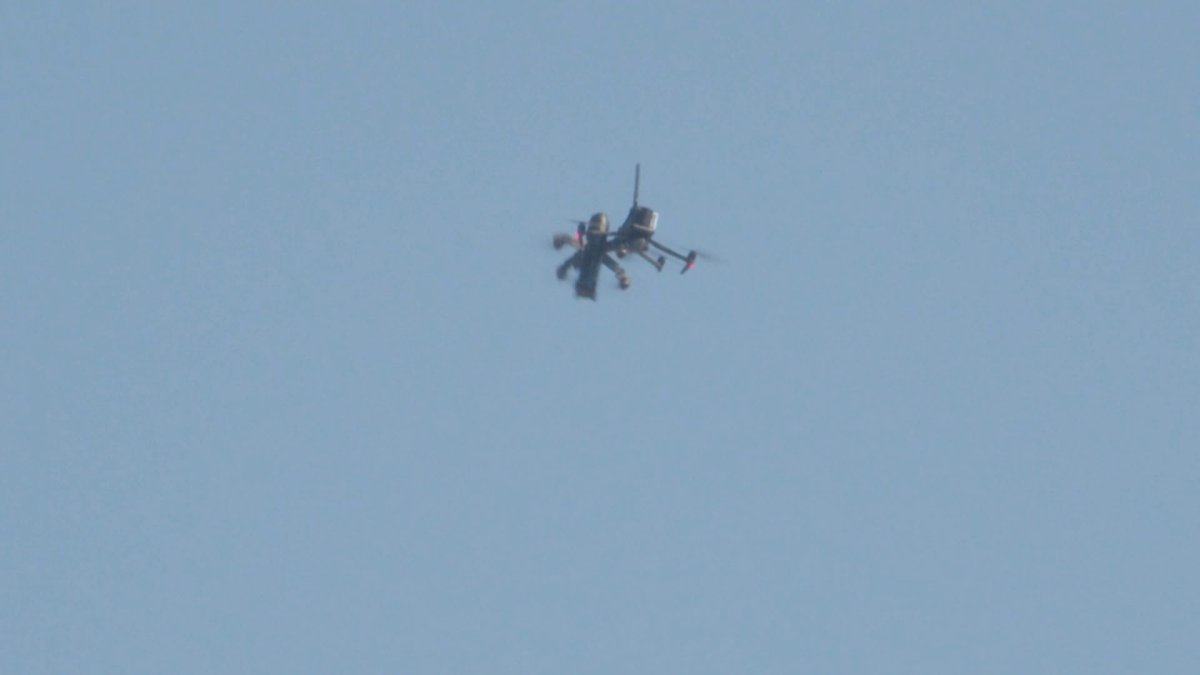Canada’s military is keeping an eye on the skies as it tries to counter a fast-developing technology.

“It’s very easy for anyone to use a drone at this point, so they’re becoming a part of our modern world that we have to become conscious of,” said Jared Giesbrecht, a defense scientist with Defense Research and Development Canada.
Commonly known as drones, uncrewed aerial systems (UAS) are the focus of the Innovation for Defence Excellence and Security (IDEaS) program’s latest sandbox, where companies demonstrate their advancements detecting, tracking and defeating smaller, commercial UAS.
The IDEaS program is designed to improve Department of National Defence’s access to the creative potential of Canadian innovators.
Businesses from Canada, Germany and Australia were at Canadian Forces Base Suffield, presenting solutions both kinetic — such as physically disabling the drones — and non-kinetic — such as radio frequency signal jamming.

Get daily National news
“It’s really good to have an exchange with the different scientists here who are attending this event,” said Bernd Burger, a sales director with Hensoldt Sensors, one of the companies participating in the sandbox. “It’s a very good week for us to learn and test.”
“This is very proactive in our ability to be able to understand the threat and how these can be used,” said Maj. Raymond Green, with the Canadian Joint Operations Command.
A counter UAS sandbox was also held at CFB Suffield in 2019.
As the technology continues evolving, experts believe the security risks associated with drones will shift along with it.
“Their speed and radio range increases every year and so that capability is continuing to improve, so we need to continue to work on solutions as they both develop in step,” Giesbrecht said.
Canadian Forces members believe the current work is encouraging.
“It’s a multiplier effect, the systems we’re seeing,” Green said. “The advancement in the technology makes… the war fighter be able to do their job more effectively and minimize the collateral damage in the process.”
The knowledge-sharing exercise will continue for another week.




Comments